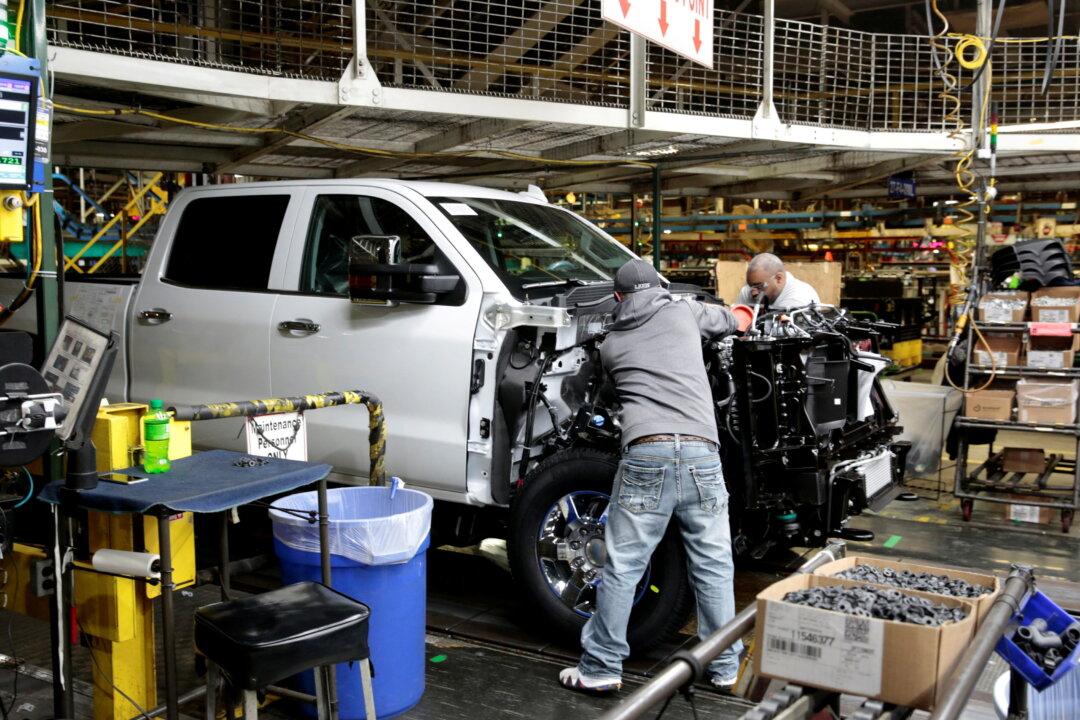Automakers in North America plan to build more pickup trucks and sport utility vehicles than electric vehicles well into the late 2020s, with strong consumer demand for gasoline-powered vehicles charting sales trends that run counter to the Biden administration’s goal of boosting electric vehicles (EVs) to half the market by 2030, according to internal production forecasts reported on by Reuters.
President Joe Biden signed an executive order earlier in August establishing the goal of making half of all new vehicles sold in the United States either hybrid or fully electric by 2030. Biden’s order also set a new schedule for the development of new long-term fuel efficiency and emissions standards to tackle pollution and other objectives.





